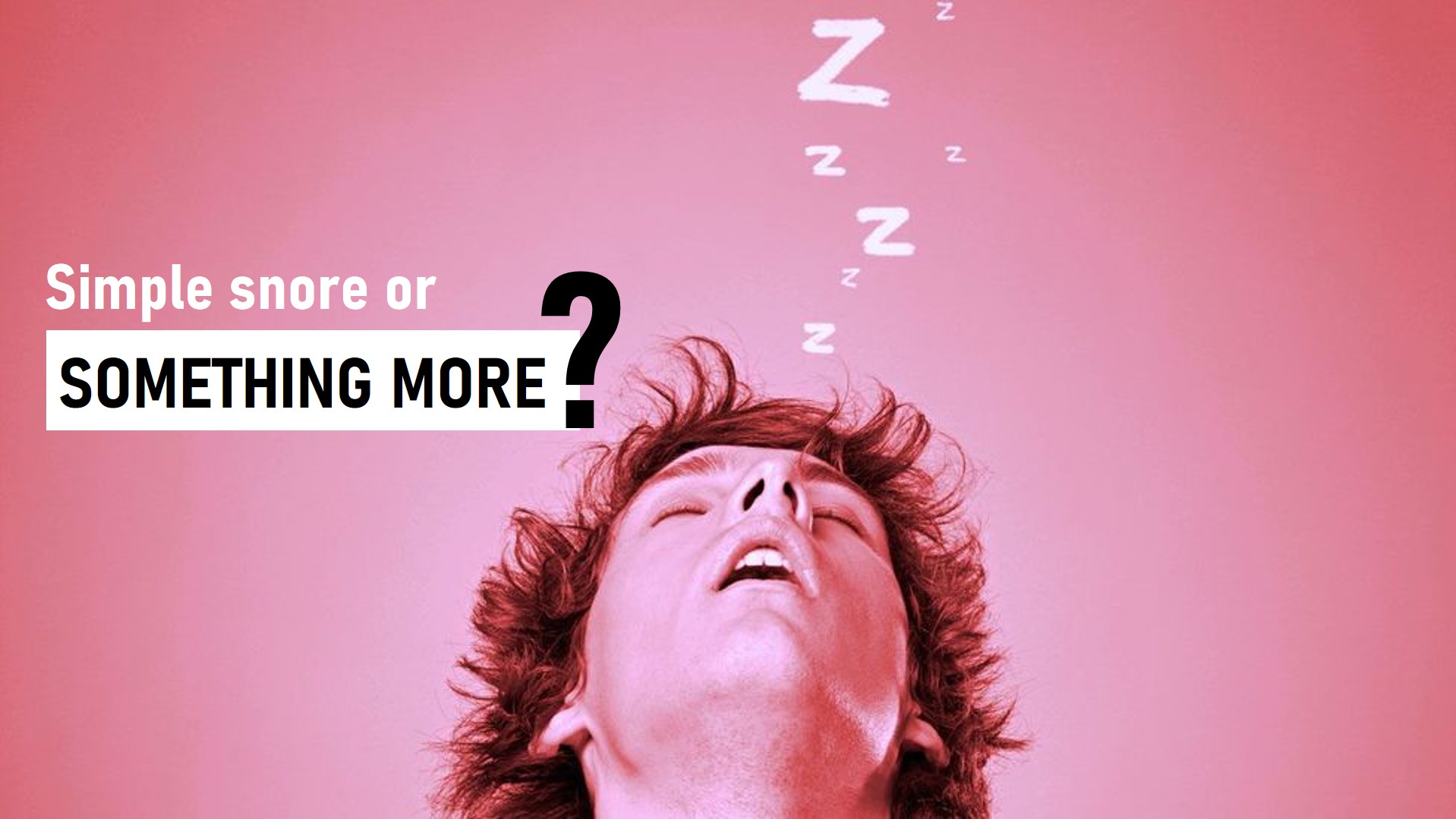- Swastik Clinic, Ahmedabad, GJ, IND
- Call: 8849867169 (For Appointment)
- Mon - Sat: 10 AM - 08 PM
- Sun: Only Emergencies
Simple Snore or Something More? Sleep Apnea May Be…

Simple Snore or Something More? Sleep Apnea May Be…
Often, snoring is dismissed as a natural part of aging. Aside from the strain it can put on your relationship with your partner, that “snore” could be a sign of a more serious health.
If you gasp or gag or snort while snoring, you may have obstructive sleep apnea. But, how do you know for sure?
Why do you snore?
Snoring happens because when you breathe the tissues in your throat can relax enough that they partially block your airway and vibrate. The more narrowed your airway, the more forceful the airflow becomes. This increases tissue vibration, which causes your snoring to grow louder.

Anything that narrows your breathing passages can cause snoring, including:
- Large tonsils
- An enlarged uvula – the tissue that hangs from the middle of the back of your throat
- Nasal congestion
- Alcohol consumption
- Excess weight
- Sleep deprivation
- Sleep position
Obstructive Sleep Apnea and Snoring
Not everyone who snores has apnea, but it is a key symptom. The difference is that, with obstructive sleep apnea, the snoring is accompanied by pauses where you literally stop breathing because your airway collapses or is blocked. These pauses, which can last from a few seconds to minutes, are followed by choking, snorting or gasping.
Obstructive sleep apnea is more common in people who are overweight, but it can affect anyone. Approximately 1 billion of the world’s population of 7.3 billion people, between the ages of 30 and 69 years, are estimated to have the most common type of sleep‐disordered breathing, obstructive sleep apnoea (OSA). [Source: Official Journal of the Asian Pacific Society of Respirology]
What is the harm?
People with apnea will stop breathing 30 times or more an hour. As a result, sleep quality is poor, the body is deprived of oxygen, and you can’t properly rid your body of carbon dioxide. This, in turn, can lead to excessive daytime sleepiness, headaches and numerous other health problems.
Habitual snoring may be more than just a nuisance. You may be at risk for other complications including:
- Daytime sleepiness
- Difficulty in concentrating
- Risk of high blood pressure and heart conditions
- Obstructive sleep apnea
- Frequent frustration or anger
Sleep apnea treatment – Don’t dismiss snoring as “natural”
Snoring treatments range from lifestyle alterations, such as weight loss, a decrease in alcohol consumption and changing sleeping positions, to oral devices, nasal strips and even surgery.
Treatment of sleep apnea often involves CPAP (Continuous Positive Airway Pressure). This therapy requires the patient to wear a mask over their nose during sleep, when the pressure is adjusted to keep the airway open at night.
Other few simple changes can help treating snoring problems, such as:
- Quit smoking
- Exercising regularly
- Sleeping on your side to help keep your tongue from relaxing into your airway
Snoring is annoying, but obstructive sleep apnea is a chronic condition that benefits from long-term treatment. Identifying the problem, and consulting pulmonologist for sleep disorder treatment, is the best way to lessen its impact on the quality of your life.
Recent Posts
Archives
- April 2022
- January 2022
- December 2021
- November 2021
- August 2021
- July 2021
- June 2021
- May 2021
- April 2021
- March 2021
- February 2021
- January 2021
- December 2020
- November 2020
- October 2020
- September 2020
- August 2020
- July 2020
- June 2020
- May 2020
- April 2020
- March 2020
- February 2020
- January 2020
- December 2019
- November 2019
- October 2019
- September 2019
- August 2019
- July 2019
Categories
Recent Posts


I Got Covid-19 & Have Asthma – What Now?
09th Jan 2022
